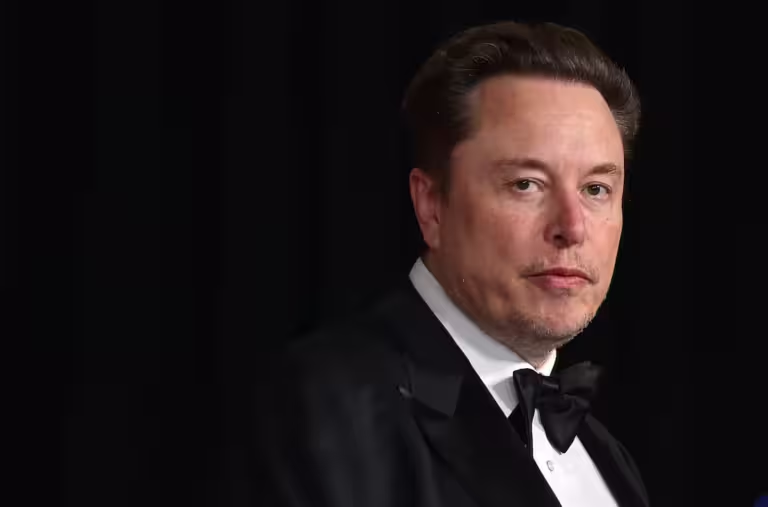In the ever-evolving landscape of tech billionaires, few figures have captured the public imagination quite like Elon Musk. Once hailed as a visionary entrepreneur dedicated to solving humanity’s greatest challenges, Musk’s recent behavior has left many scratching their heads. From electric cars to space exploration, Musk’s earlier ventures painted him as a futurist with a humanitarian bent. But in recent years, we’ve witnessed a startling transformation: the poster boy of sustainable tech has become a prolific poster of right-wing memes.
The Early Days: A Visionary’s Rise
Elon Musk’s journey to tech stardom began in the crucible of the dotcom boom. After making his initial fortune, Musk set his sights on bigger targets. His investment in Tesla in 2004 marked the beginning of an era where green tech could be sexy, powerful, and profitable. As Tesla’s CEO, Musk became the face of the electric vehicle revolution, speaking passionately about the dangers of climate change and the need for sustainable transportation.
But Musk didn’t stop there. With SpaceX, he rekindled humanity’s dreams of space exploration. OpenAI promised to democratize artificial intelligence. The Boring Company aimed to revolutionize urban transport. Each venture seemed to align with a grand vision of improving humanity’s future. Musk wasn’t just selling products; he was selling hope.
The Turning Point: From Tweets to Controversy
Around 2020, something changed. The onset of the COVID-19 pandemic saw Musk transform from an occasional tweeter to a full-blown social media personality. His posts about the pandemic’s severity and duration drew criticism and calls for fact-checking. It was as if the platform that had once amplified his vision was now revealing a different side of the tech mogul.
This period coincided with personal turbulence. Musk’s relationship with musician Grimes began to unravel, eventually leading to a custody battle. More significantly, his daughter Vivian came out as transgender, publicly distancing herself from her father. These personal challenges seemed to coincide with—and possibly fuel—Musk’s rightward political shift.
The Radicalization of a Billionaire
Musk’s political transformation didn’t happen overnight. It was a gradual process, marked by increasingly controversial statements and alignments. His biographer, Walter Isaacson, noted that Musk began sending “right-wing memes and conspiracy theories” to Grimes, signaling a shift in his media consumption and worldview.
The tech CEO’s response to his daughter’s transition is particularly telling. In an interview with Jordan Peterson, Musk framed the situation as losing his child to the “woke mind virus.” This personal experience seems to have been a catalyst for his increasing alignment with right-wing talking points.
Experts in radicalization suggest that personal experiences often create openings for ideological shifts. For Musk, his daughter’s transition and the ensuing estrangement appear to have been that crucial moment. Combined with his innate need for attention and validation, this personal crisis set the stage for a dramatic political realignment.
The Echo Chamber Effect
Musk’s acquisition of Twitter (now X) in 2022 marked a new chapter in this transformation. Now in control of one of the world’s largest social media platforms, Musk had created what one expert called “the world’s largest echo chamber.” His posts, no matter how controversial, could reach millions instantly.
The feedback loop is clear: controversial posts garner attention, which fuels more posts, which attracts more right-wing supporters, and so on. The recent incident where Musk shared a fake headline from a far-right British political party is just the latest in a string of controversies. That the post received nearly 2 million views in just 30 minutes before being deleted speaks to the immense reach and influence Musk now wields.
Related Stories
The Consequences (or Lack Thereof)
Perhaps the most concerning aspect of Musk’s transformation is the apparent lack of consequences for his actions. Despite spreading misinformation, making controversial statements, and aligning with far-right figures, Musk remains at the helm of multiple influential companies. This seeming invulnerability may be reinforcing his behavior, creating a dangerous precedent in the tech world.
Musk’s recent announcement of a political action committee, America Pac, signals his intent to formalize his political influence. With reports suggesting he might donate up to $45 million monthly, primarily to Republican causes, Musk is poised to become a major player in American politics.
Looking Ahead: The Future of Tech and Politics
As we watch Elon Musk’s continued rightward shift, it’s crucial to consider the broader implications for the tech industry and society at large. When one of the world’s most influential tech leaders becomes a conduit for right-wing ideology, it raises questions about the responsibility of tech platforms and their leaders.
Musk’s journey from a climate change crusader to a right-wing meme lord is more than just a personal transformation—it’s a cautionary tale about the intersection of technology, wealth, and political influence. As users and citizens, we must remain vigilant, critically examining the messages and motivations of even our most admired tech leaders.
In the end, Elon Musk’s story reminds us that no one is immune to ideological shifts, and that great power comes with great responsibility—a lesson that seems increasingly lost on the man who once promised to save humanity through innovation.




Comments are closed.